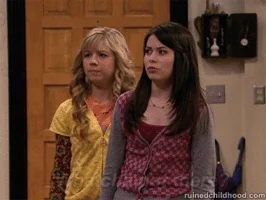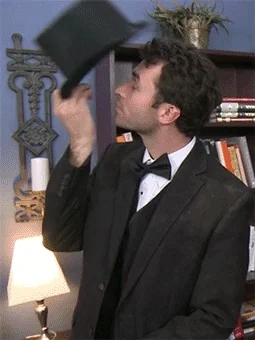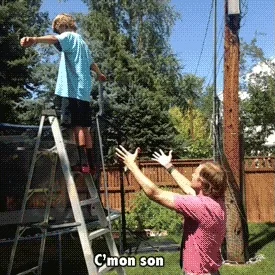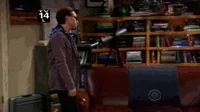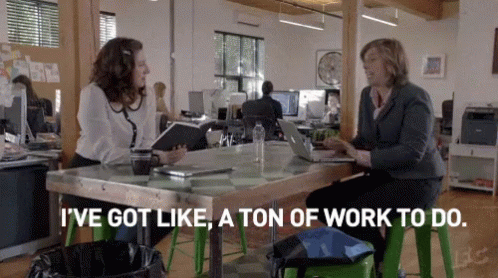I figured this last blog post would be a wrap up of what I've experienced this past semester, but I'm going to be honest, I'm going to use this as a way to release. Because as Sarah would say, I have feelings. I promise this will still relate to pedagogy, and not be a ton of paragraphs of my venting. Palmer says your truth is your reality. Right now, my truth is that I'm a super stressed and tired graduate student who has to wake up in the morning and teach students and then write most of the day. I'm going to make it though. This semester has definitely been a learning experience, but I can't tell you what I've learned quite yet. I've had to process so much information this semester that I think it'll take me until next semester to have a clear understanding of what I learned and how that will apply to my pedagogy. Coming to that realization, I realized something: your pedagogy is a journey, and will change and mold over time. Experiences, they shape who we are in all aspects, and our pedagogy is the same.
In the 10th grade, I took a Pre-AP Physics course with an instructor who cared way more about his cross country team than a bunch of kids trying to understand physics. The class was ridiculously hard, because DUH, physics and he didn't really care. I've always been a studious and academic driven person, so I studied my little butt off for this course! I remember vividly of getting a test handed back with an A on it! I was so happy and proud of myself. My instructor then went on to tell me "I was very impressed with this score, especially for a girl!"
When I got hired for my previous job, I was tasked to "explain why my job was needed and necessary" to a board room filled with 10 + older, and mostly white men. I was ripped to shreds one month into my job at that board meeting, and I sat down with tears in my eyes after my presentation. I had never felt more humiliated in my life. One person came up to me after the meeting to say they thought I did a good job and to "Not give up." The rest avoided eye contact with me and didn't shake my hand. The next day at work my co-workers looked at me with sympathy. I told myself then that "I'll never be enough."
At the same job, I sat in a meeting with a board member who asked me frankly, "How much alcohol did I drink on the weekends?" because he was uncomfortable with giving me access to post on the organizations behalf on Facebook. He had never met me before. My own personal Facebook was clean of any night life activities. He made an assumption about me. I was told later by my management that I should have "defended myself." I continued to be bullied by this same man throughout the duration of my position and was told consistently that he "just wanted to feel important and to not take his comments and tactics to heart." The bullying only stopped when another person in power outside of the organization called him out on his behavior. I got a "You're doing a great job. Keep up the great work," followed with an avoidance for the duration of my position.
These are all examples of moments that have given me a reason. These moments have hurt me. They have made me cry and they have made me feel unworthy. What do I have to do? I can't change who I am. Sexism. Racism. I grew up hearing that I had "two strikes," one strike for being a woman, and another for being black. I was told I'd have to work twice as hard to get half of what others had. My experiences shape me in my friendships, relationships, and also in the classroom. I had to share all of that, one for myself, because I needed to be reminded WHY IM HERE. Why did I show up to UNT for a Masters degree? Because I have to work twice as hard. Be the best I can be in every SINGLE way that I can. Challenge myself. Push myself. #BerryBlues
Sure! We may love Dewey, bell hooks, and even Fish, but their experiences are not ours. I don't foresee myself being in academia full time, but I do know that what I love about teaching is the connections and the guidance I'm able to give to my students. I am more concerned with the impact than what they memorize for an exam. What activities in Kimberly's classroom impacted that student who couldn't face his privilege? Or the student who felt like they weren't validated? These are the things that students remember. I don't want my students to walk away from my class feeling defeated and drained, like I have in so many classrooms and in other experiences. My pedagogy surrounds itself around the concept of "walking a way a little bit higher than you came in." Although some students may feel beaten down initially when they have to sit and listen about what privilege and power are. Eventually those concepts allow to help others feel a little bit "higher."
My message to you friends, is that allow your story to guide you. To guide your actions and decisions. Let it guide your pedagogy and how you not only interact with students, but interact with other human beings.
Shine bright, don't let anyone try to dim your light.
Peace and Love.
#TheReal

